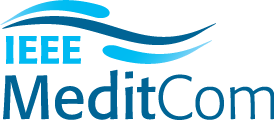Keynote 1
Date/Time: Wednesday, Sept. 8th, from 9:20 AM to 10:00 AM Athens time (UTC+3)
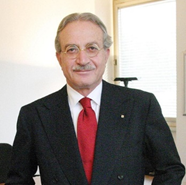
Maurizio Dècina
Past President, IEEE Communications Society
Politecnico di Milano
Maurizio Dècina is Emeritus Professor of the Politecnico di Milano, Milan Italy. He equally shared his 55-year career in telecommunications between industry and university. He was scientific consultant for AT&T Bell Laboratories in Chicago, scientific Director and founder of the CEFRIEL consortium in Milan, and Executive R&D Director of Italtel in Milan. Prof. Dècina was a Commissioner of the Italian Communications Authority, AGCOM, in Rome, President of Infratel and President of the Ugo Bordoni Foundation, in Rome, and Member of the Board of Telecom Italia, Italtel and several other ICT Companies Prof. Dècina was President of the IEEE Communications Society. IEEE appointed him Life Fellow for contributions to voice/data packet switching, and he received three IEEE Awards: International Communications, Third Millennium Medal, and ComSoc/KICS Global Service.
Talk Title: Gigabit Connectivity: European Recovery & Resilience Plans for Very High Speed Networks
Abstract: The keynote describes current experience of the speaker with the Italian Digital Transition Ministry to prepare a recovery and resilience national plan to reach all households, shops and small enterprises in Italy, in the next 5 years with gigabit fiber or fixed wireless access systems. The talk will explain current mapping criteria to evaluate maximum channel capacity and peak download speeds under busy hour traffic conditions, in order to apply State Aids for developing VHCN fixed infrastructures. Reference is given to current approaches of other European countries.
Keynote 2
Date/Time: Wednesday, Sept. 8th, from 13:50 to 14:30 Athens time (UTC+3)
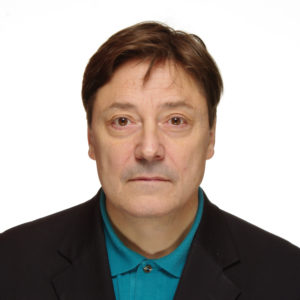
Bernard Barani
European Commission
Bernard Barani joined the European Commission in 1994 after 11 years as communications engineer in industry on military optical systems and with the European Space Agency on advanced Satcom programs. Since 1994, he has been responsible for the strategy and the implementation of European research and policy issues in wireless communications, audio visual systems, RFID, Internet of Things, and networked enterprise systems. He is currently Deputy Head of Unit in the CONNECT Directorate General of the European Commission where he leads the definition and implementation of the 5G Public/Private Partnership, the industrial EC initiative launched to support 5G European R&D and deployment. Main field of responsibilities covers strategic R&D planning and implementation including future beyond 5G/6G systems, standardization, international cooperation, demonstration, and pilot programs. He also has a lead role to define the future Public/Private Partnership on Smart Networks and Services (6G) targeted for implementation under the Horizon Europe program in the 2021 – 2027 time frame. He is also vice chairman of the Steering committee of the EUCNC conference, the main showcasing event for telecom research sponsored by the EU programs. He has an engineering degree from the “Ecole Nationale Supérieure des Télécommunications de Bretagne”.
Talk Title: Towards 6G: The European Pathway
Abstract: R&I initiatives on 6G technologies are now starting in leading regions world-wide, with the first products and infrastructures expected by the end of this decade. In Europe, a first set of 6G projects worth €60 million has already been launched under the 5G-PPP with the Hexa-X flagship developing a 6G vision and a system concept as well as addressing enabling core technologies. It is complemented by 8 projects investigating specific technologies for 6G. The developing 6G vision targets a step change in our ability to interact with the physical and human world, using massively digital representations and “twins” of the real world to intelligently sense and interact with it. It calls upon new technologies and architectures where native AI has a central role, while full programmability, real time data analytics, Terabit capacities and sub-millisecond response times, end-to-end security are needed to enable new critical and highly immersive applications. Moreover, new smart network technologies and architectures will need to drastically enhance the energy efficiency of connectivity infrastructures to manage major traffic growth while keeping electromagnetic fields (EMF) under strict safety limits. These technologies will form the basis for a human-centric Next-Generation Internet (NGI) and address Sustainable Development Goals (SDGs) such as accessibility, limitless access, and affordability of technology. In that context, the Commission is preparing a proposal for a strategic European partnership on Smart Networks and Services towards 6G, taking the form of a Joint Undertaking to implement research activities on 6G technology under Horizon Europe. The talk will hence describe the currently contemplated 6G drivers, technologies as planned to be addressed under this new initiative.
Keynote 3
Date/Time: Thursday, Sept 9th, from 09:00 AM to 09:40 AM Athens time (UTC+3)
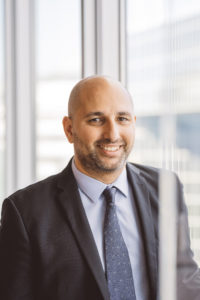 Merouane Debbah
Merouane Debbah
Huawei
Mérouane Debbah received the M.Sc. and Ph.D. degrees from the Ecole Normale Supérieure Paris-Saclay, France. He was with Motorola Labs, Saclay, France, from 1999 to 2002, and also with the Vienna Research Center for Telecommunications, Vienna, Austria, until 2003. From 2003 to 2007, he was an Assistant Professor with the Mobile Communications Department, Institut Eurecom, Sophia Antipolis, France. In 2007, he was appointed Full Professor at CentraleSupelec, Gif-sur-Yvette, France. From 2007 to 2014, he was the Director of the Alcatel-Lucent Chair on Flexible Radio. Since 2014, he has been Vice-President of the Huawei France Research Center. He is jointly the director of the Mathematical and Algorithmic Sciences Lab as well as the director of the Lagrange Mathematical and Computing Research Center. He has managed 8 EU projects and more than 24 national and international projects. His research interests lie in fundamental mathematics, algorithms, statistics, information, and communication sciences research. He is an IEEE Fellow, an EURASIP Fellow, a WWRF Fellow, and a Membre émérite SEE. He was a recipient of the ERC Grant MORE (Advanced Mathematical Tools for Complex Network Engineering) from 2012 to 2017. He was a recipient of the Mario Boella Award in 2005, the IEEE Glavieux Prize Award in 2011, the Qualcomm Innovation Prize Award in 2012, the 2019 IEEE Radio Communications Committee Technical Recognition Award and the 2020 SEE Blondel Medal. He received more than 20 best paper awards, among which the 2007 IEEE GLOBECOM Best Paper Award, the Wi-Opt 2009 Best Paper Award, the 2010 Newcom++ Best Paper Award, the WUN CogCom Best Paper 2012 and 2013 Award, the 2014 WCNC Best Paper Award, the 2015 ICC Best Paper Award, the 2015 IEEE Communications Society Leonard G. Abraham Prize, the 2015 IEEE Communications Society Fred W. Ellersick Prize, the 2016 IEEE Communications Society Best Tutorial Paper Award, the 2016 European Wireless Best Paper Award, the 2017 Eurasip Best Paper Award, the 2018 IEEE Marconi Prize Paper Award, the 2019 IEEE Communications Society Young Author Best Paper Award and the Valuetools 2007, Valuetools 2008, CrownCom 2009, Valuetools 2012, SAM 2014, and 2017 IEEE Sweden VT-COM-IT Joint Chapter best student paper awards. He is an Associate Editor-in-Chief of the journal Random Matrix: Theory and Applications. He was an Associate Area Editor and Senior Area Editor of the IEEE TRANSACTIONS ON SIGNAL PROCESSING from 2011 to 2013 and from 2013 to 2014, respectively. From 2021 to 2022, he serves as an IEEE Signal Processing Society Distinguished Industry Speaker.
Talk Title: Rebuilding the Theoretical Foundations of Communications and Computing
Abstract: We are arriving at the end of an era that has guided the ICT for the last century. Quite remarkably, many of the remarkable engineering breakthroughs in Communication (the famous “G” era) and Computing (the famous “Moore’s” era) were based on quite old Basics. Indeed, the Nyquist Sampling theorem dates back to 1924, the Shannon’s Law to 1948 and the Von Neumann Architecture to 1946. Today, we are desperately lacking guidance for new engineering solutions as we have approached those limits and there is a need for the whole industry to take its share of responsibility by re-investing massively in the fundamentals to revive a new century of engineering progress. In this talk, we will re-discuss the assumptions made a century ago and provide a research roadmap showcasing the fundamental role of Mathematics and Physics to unlock the theoretical barriers.
Keynote 4
Date/Time: Thursday, Sept 9th, from 09:40 AM to 10:20 AM Athens time (UTC+3)
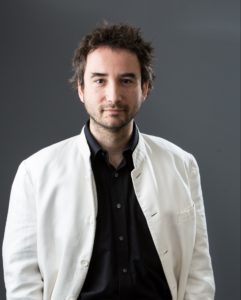 Mischa Dohler
Mischa Dohler
King’s College London
Mischa Dohler is full Professor in Wireless Communications at King’s College London, driving cross-disciplinary research and innovation in technology, sciences and arts. He is a Fellow of the IEEE, the Royal Academy of Engineering, the Royal Society of Arts (RSA), the Institution of Engineering and Technology (IET); and a Distinguished Member of Harvard Square Leaders Excellence. He is a serial entrepreneur with 5 companies; composer & pianist with 5 albums on Spotify/iTunes; and fluent in 6 languages. He sits on the Spectrum Advisory Board of Ofcom, and acts as policy advisor on issues related to digital, skills and education. He has had ample coverage by national and international press and media. He is featured on Amazon Prime. He is a frequent keynote, panel and tutorial speaker, and has received numerous awards. He has pioneered several research fields, contributed to numerous wireless broadband, IoT/M2M and cyber security standards, holds a dozen patents, organized and chaired numerous conferences, was the Editor-in-Chief of two journals, has more than 300 highly-cited publications, and authored several books. He was the Director of the Centre for Telecommunications Research at King’s from 2014-2018. He is the Cofounder of the Smart Cities pioneering company Worldsensing, where he was the CTO from 2008-2014. He also worked as a Senior Researcher at Orange/France Telecom from 2005-2008.
Talk Title: 6G Self-Synthesizing Networks for an Immersive World
Abstract: In this keynote, I will discuss the exciting challenges ahead of designing the next generation telco systems, 6G. I will explain the rational of the KPIs and the fundamental change in architecture required to deliver these KPIs. Notably, I will introduce the pioneering concept of Self-Synthesizing Networks (SSNs) which will allow us to significantly shorten innovation cycles. We shall also look at applications and new services which 6G will power in the years to come.
Keynote 5
Date/Time: Thursday, Sept 9th, from 10:20 AM to 11:00 AM Athens time (UTC+3)
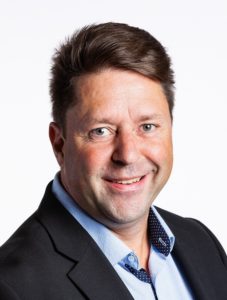 Matti Latva-aho
Matti Latva-aho
University of Oulu
Matti Latva-aho received the M.Sc., Lic.Tech. and Dr. Tech (Hons.) degrees in Electrical Engineering from the University of Oulu, Finland in 1992, 1996 and 1998, respectively. From 1992 to 1993, he was a Research Engineer at Nokia Mobile Phones, Oulu, Finland after which he joined Centre for Wireless Communications (CWC) at the University of Oulu. Prof. Latva-aho was Director of CWC during the years 1998-2006 and Head of Department for Communication Engineering until August 2014. Currently he serves as Academy of Finland Professor and is Director for National 6G Flagship Programme. His research interests are related to mobile broadband communication systems and currently his group focuses on 6G systems research. Prof. Latva-aho has published over 500 conference or journal papers in the field of wireless communications. He received Nokia Foundation Award in 2015 for his achievements in mobile communications research.
Talk Title: Societal challenges, business opportunities and technology enablers behind 6G visions
Abstract: The key drivers for necessitating 6G can be categorized to societal, business ecosystems, technical and regulation related foreseen developments. In particular, United Nations Sustainability Development Goals (UN SDGs) alongside with accelerating digitalisation of societies are setting the needs and timescale for future development. A number of both value based and technical oriented KPIs have been identified and those will be utilized in the global 6G systems requirements to be defined during 2023 by International Telecommunications Union (ITU). Local spectrum licensing enabling efficient development of new verticals allowing new businesses already in 5G clearly indicates how spectrum regulation should evolve in the future. Vertical needs will start to dominate the future evolution of wireless beyond mobile broadband placing us to cross-roads between a compromise one-solution-fits-all-verticals or customized solutions for some of the most critical future verticals.
